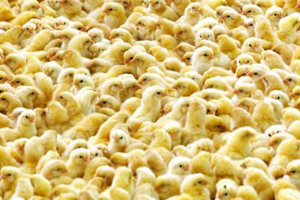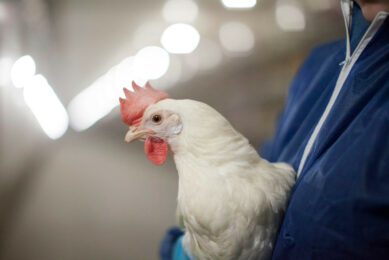Potential of defatted microalgae to replace soybean meal

According to an extensive review published in the Journal of Animal Science, defatted biomass from the biofuel industry may replace some of the corn and soybean currently used for weanling pigs, broiler chicks and laying hens. This is an abstract from the report.
While feeding food-producing animals with microalgae was investigated several decades ago, this research has been reactivated by the recent exploration of microalgae as the third generation of feedstocks for biofuel production. Because the resultant defatted biomass contains high levels of protein and other nutrients, it may replace a portion of corn and soybean meal in animal diets.
Our laboratory has acquired 4 types of full-fat and defatted microalgal biomass from biofuel production research (Cellana, Kailua-Kona, HI) that contain 13.9 to 38.2% crude protein and 1.5 to 9.3% crude fat. This review summarizes the safety and efficacy of supplementing 2 types of the biomass at 7.5 to 15% in the diets of weanling pigs, broiler chicks, and laying hens. Based on their responses of growth performance, egg production and quality, plasma and tissue biochemical indicators, and/or fecal chemical composition, all 3 types of animals were able to tolerate the microalgal biomass incorporation into their diets at 7.5% (on as-fed basis).
Holistic analysis is also provided to explore the global potential of using the defatted microalgal biomass as a new feed ingredient in offsetting the biofuel production cost, reducing the dependence on staple crops such as corn and soybeans, decreasing greenhouse gas production of animal agriculture, and developing health value-added animal products.
Source: Journal of Animal Science 2014 Volume 92
Authors: S.Gatrell, K. Lum, J.Kim and X.G.Lei











